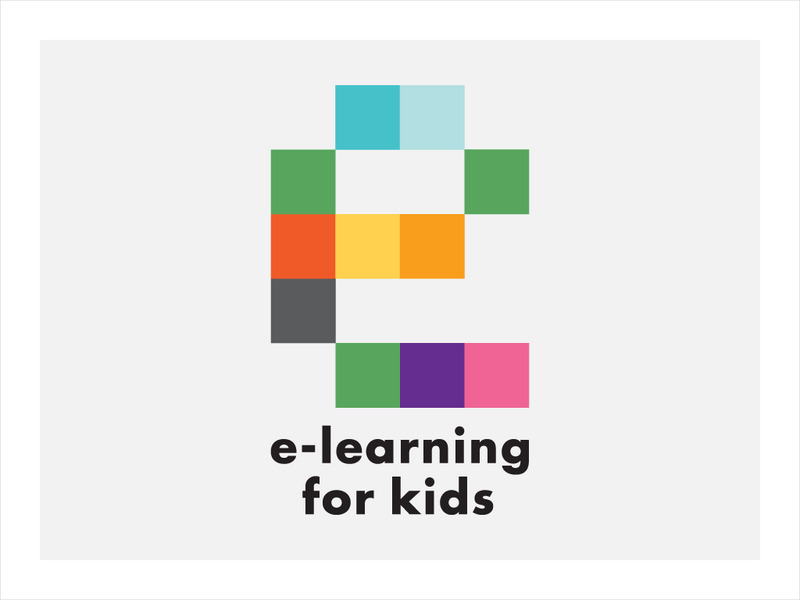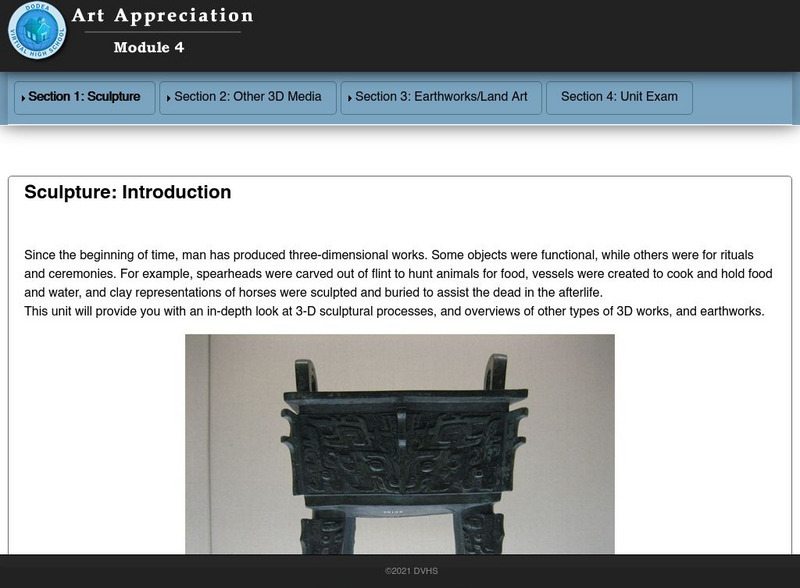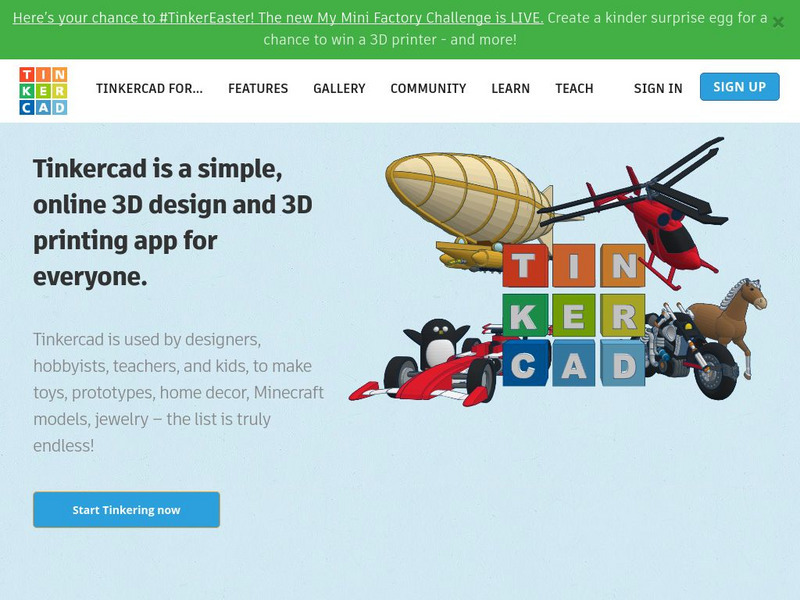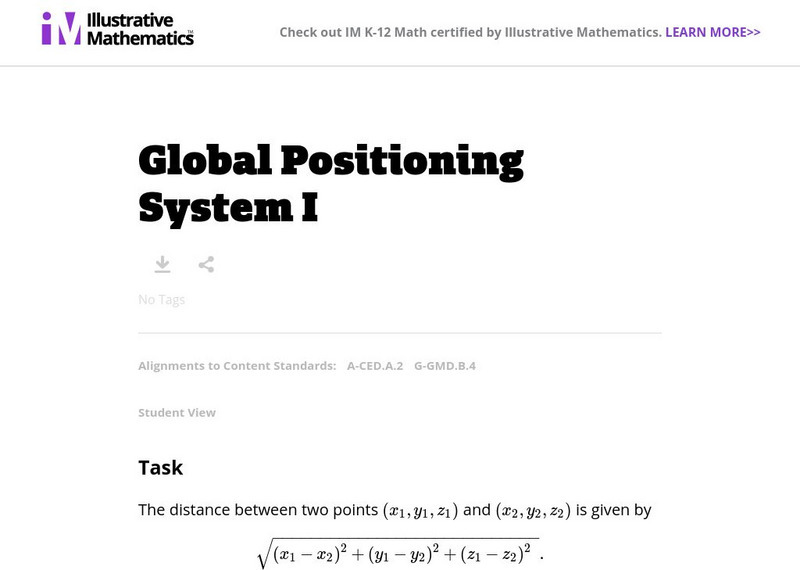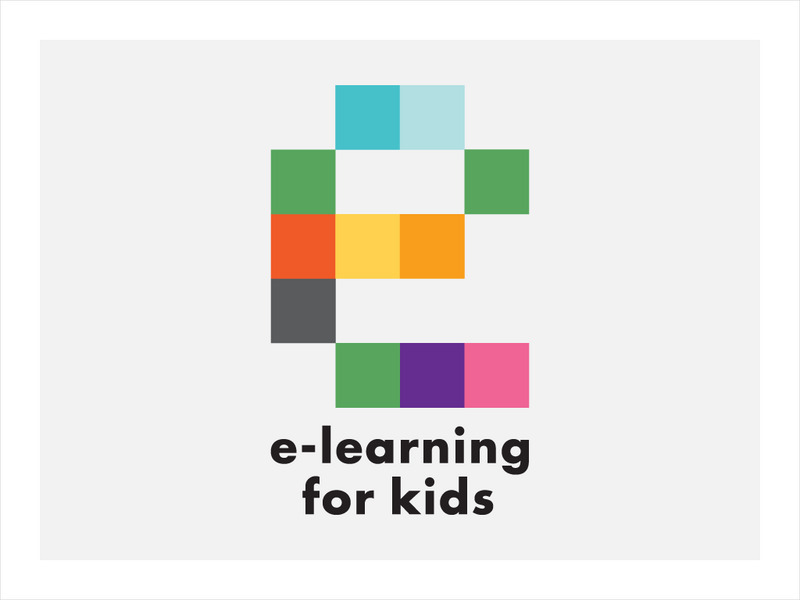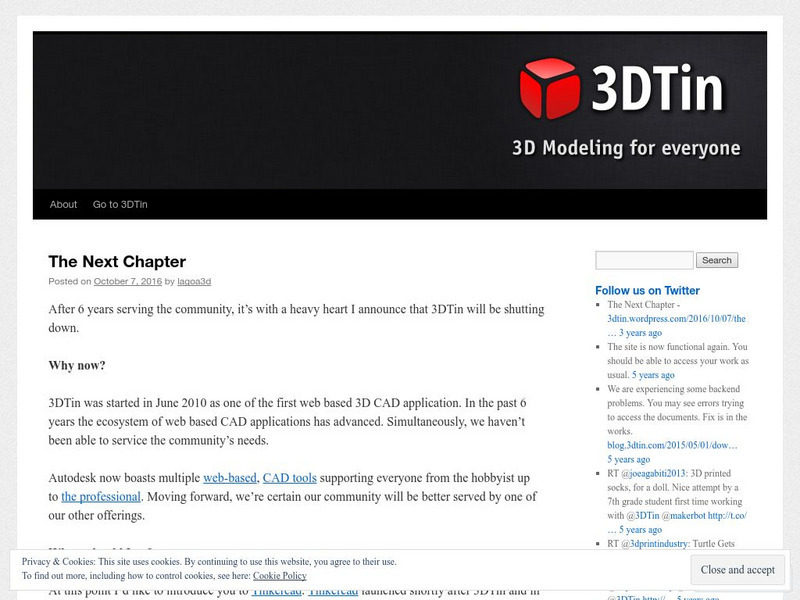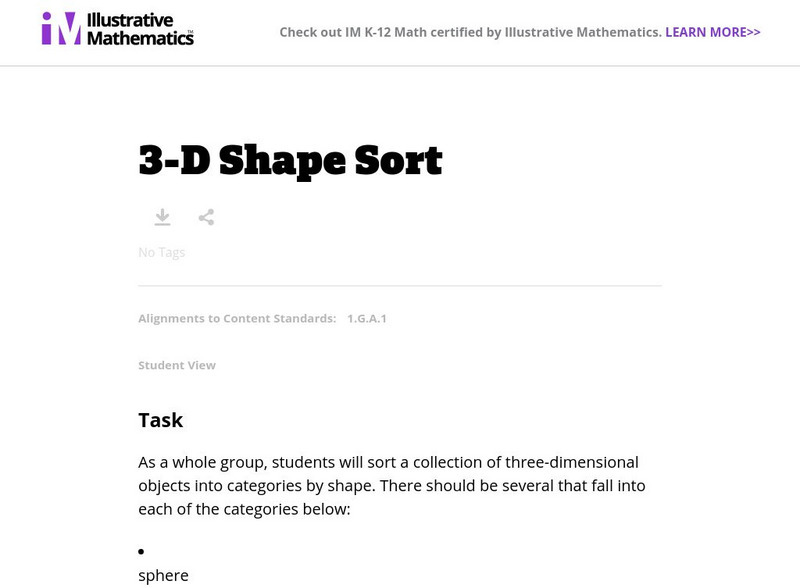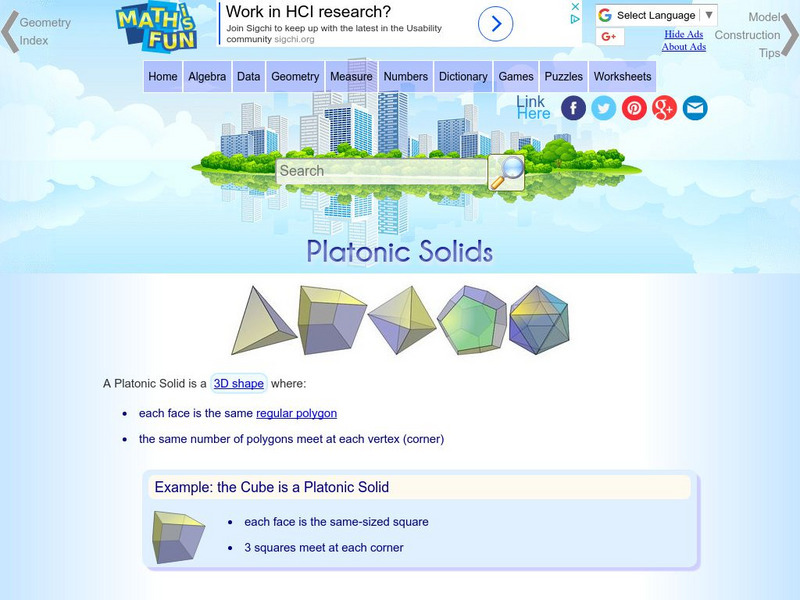Hi, what do you want to do?
CK-12 Foundation
Ck 12: Interactive Geometry: 9.5 Modeling in Three Dimensions
Explore connections between a 2-dimensional net and a 3-dimensional box. Later in this section, use equations with variables to solve real world problems that use 2 and 3-dimensional objects.
University of Texas at Austin
University of Texas: Elementary Math Club: Math Mobile
Learners explore the geometric and topological properties of three-dimensional objects. The lesson plan includes an overview and a lesson toolkit.
E-learning for Kids
E Learning for Kids: Math: School Bus: 3 D Objects
Let Peter the Bus driver help you learn about 3D objects.
Department of Defense
Do Dea: Art Appreciation: Unit 5: 3 D Art
This fifth unit of a course on Art Appreciation looks at different forms of three-dimensional art. Students learn about sculpture and its history, government-funded art works, and controversy in art. They look at other types of 3-D...
Other
Autodesk: 3 D Printing
Students explore three dimensional objects with this interactive editing tool.
Alabama Learning Exchange
Alex: Me in 3
Through this lesson, learners will collect images of three objects that interest them or define who they are. Students will use photo references of these things to create fimo sculptures.
Primary Resources
Primary Resources: 2 D and 3 D Shapes
Here is a huge collection of teacher resources for teaching 2-D and 3-D shapes. Includes smartboard and PowerPoint presentations, as well as worksheets and helpful hints.
Other
Coloring 3 D Sides
Students use the colored portion of the 2-D drawings to color the correct face of the 3-D model. This applet consists of 20 problems. [Requires Java.]
University of Cambridge
University of Cambridge: Nrich: Three Cubed
Use the shapes provided and figure out how they fit together to make a 3 X 3 cube at this one page website. The solution is readily available right at the website.
Texas Instruments
Texas Instruments: Copying an Angle
Explore relationships (including congruence and similarity) among classes of two- and three-dimensional geometric objects, make and test conjectures about them, and solve problems involving them.
Illustrative Mathematics
Illustrative Mathematics: A Ced.2 and G Gmd.4: Global Positioning System I
This question examines the algebraic equations for three different spheres. The intersections of each pair of spheres are then studied, both using the equations and thinking about the geometry of the spheres. Aligns with A-CED.A.2 and...
Other
Coloring 2 D Sides
Learners use the colored portion of the 3-D object to color the correct side of the 2-D drawing. This applet consists of 20 problems. [Requires Java.]
E-learning for Kids
E Learning for Kids: Math: Penguins: 3 D Objects & Position
Percy the Penguin needs to clean up his 3D shaped toys. Can you help him?
Other
3 D Tin: 3 D Printing
Students can explore three dimensional objects using this interactive sketch board.
Illustrative Mathematics
Illustrative Mathematics: 1.g 3 D Shape Sort
As a whole group, students will sort a collection of three-dimensional objects into categories by shape. There should be several that fall into each of the categories below: Aligns with 1.G.A.1.
Varsity Tutors
Varsity Tutors: Hotmath: Practice Problems: Geometry in Space
Twenty-four problems covering a variety of solid figure topics: dimensions, volume, surface and base areas. They are given with each step to the solution cleverly revealed one at a time. You can work each step of the problem then click...
Physics Aviary
Physics Aviary: Velocity Vector in 3 D
A program that will randomly move an object from one location to another in three-dimensional space. You must determine the three components of the velocity vector that is created by this movement and also the speed of the object during...
Physics Aviary
Physics Aviary: Displacement Vector in 3 D
A program that will randomly move an object from one location to another in three dimensional space. You must determine the length of the displacement vector that is created by this movement.
Other
Ohio Resource Center: Shadows
This applet helps students visualize the shapes of shadows cast by a cube with a light coming from different angles. This helps students visualize shapes from different angles and to identify, sketch and classify the cross-sections of...
Other
Kindergarten Works: 10 Activities for Describing 3 D Shapes in Kindergarten
Describing 3D shapes in Pre-K and Kindergarten is now an expectation as it is a key geometry standard. This resource contains 3D shapes activities and resources for practicing this standard. Included are chants, videos, games, poetry,...
Illustrative Mathematics
Illustrative Mathematics: 7.g Cube Ninjas!
In this lesson, 7th graders slice three dimensional objects to determine what two dimensional shape is created.
Math Is Fun
Math Is Fun: Making 3 D Solids
This tutorial features templates and instructions to make the following solids: tetrahedron, cube, octahedron, dodecahedron, and icosahedron.
History is Fun
Jan Brett: Geometric Solids Flashcards Pdf
Print out these colorfully illustrated PDF file pages to practice learning your basic three dimensional geometric solids. Fold them in half and one side shows the shape while the other side shows the shape with the correct name. Put them...






